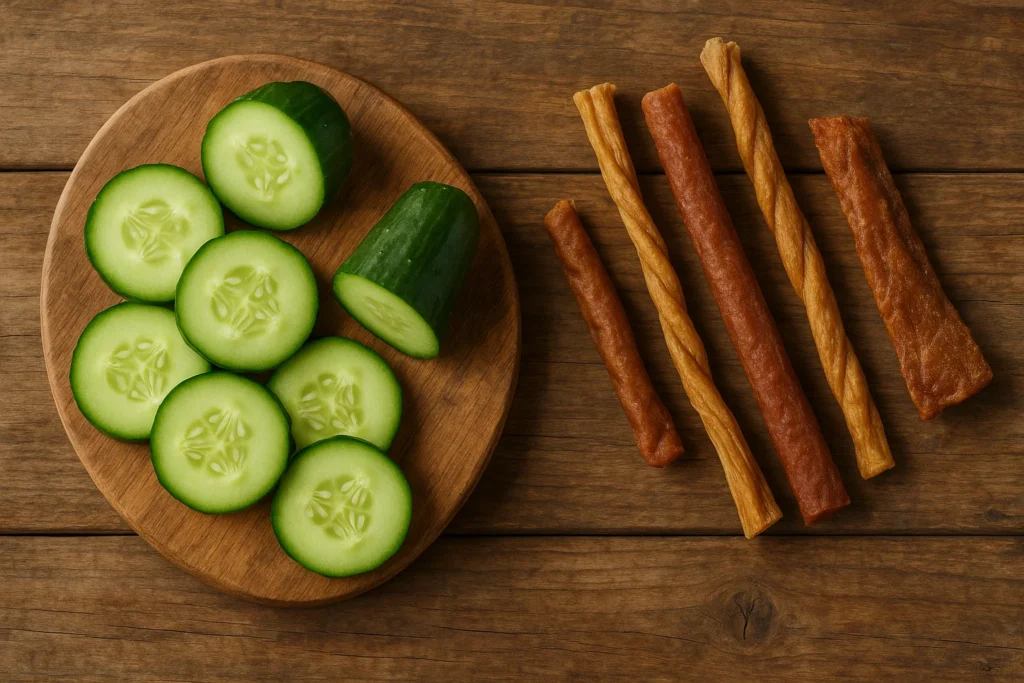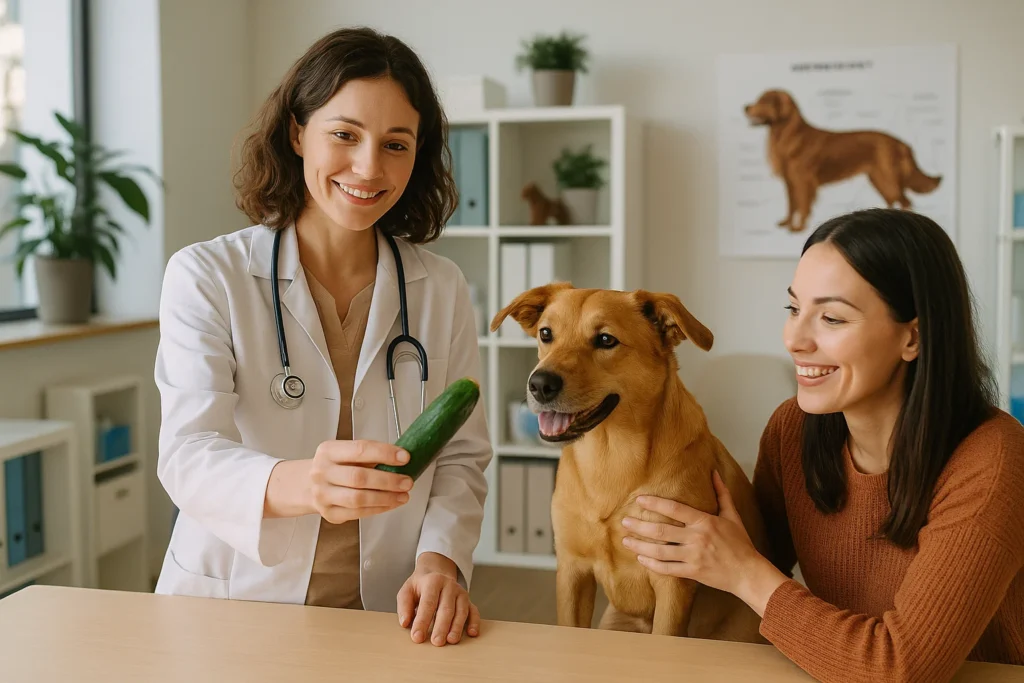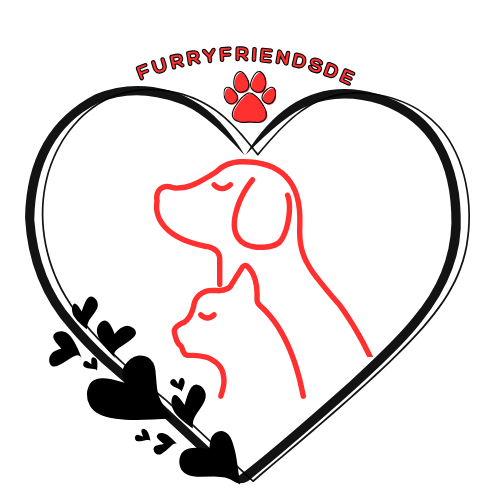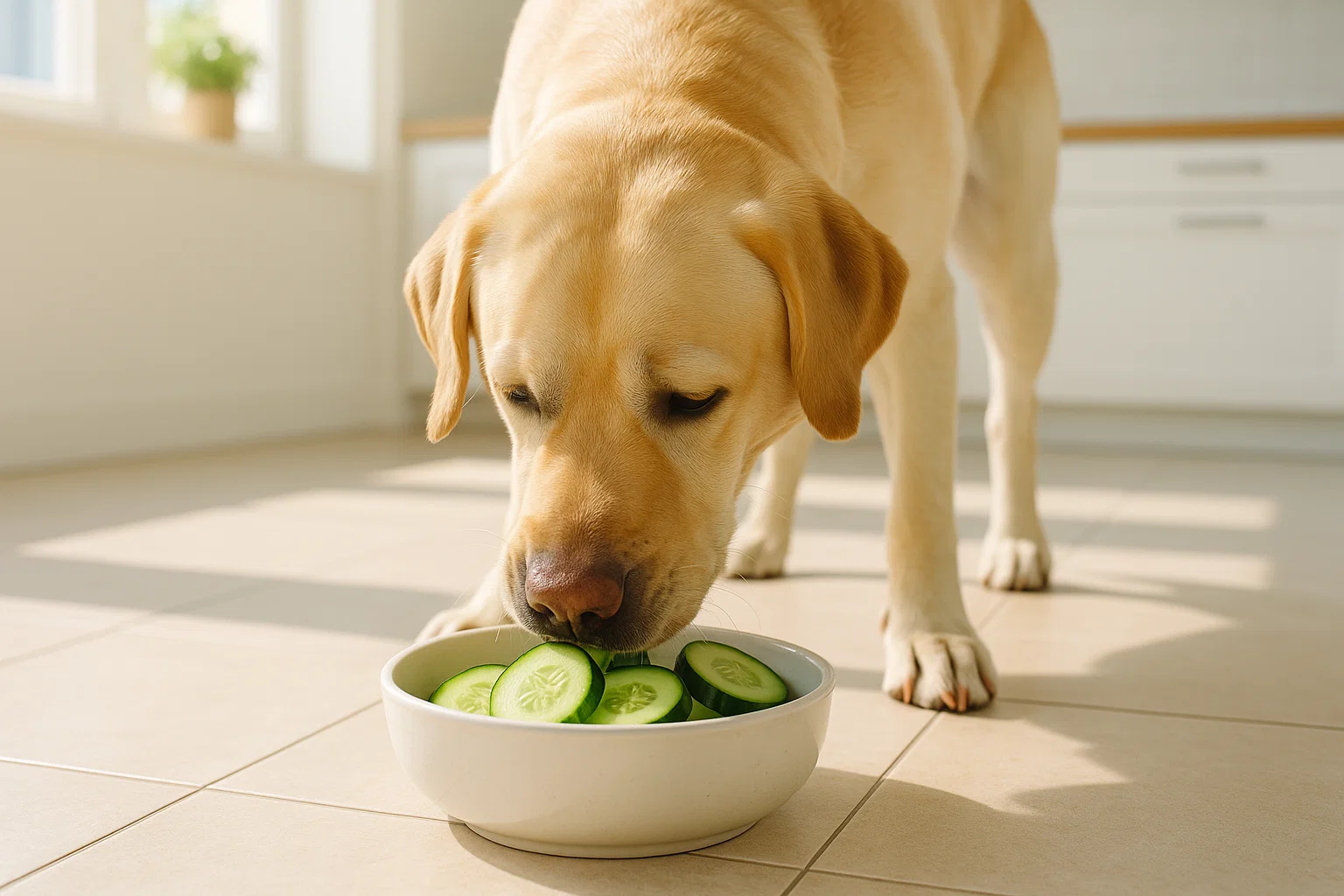
Can dogs eat cucumbers? It’s a simple question that crosses the minds of many dog owners, especially when their curious pup starts eyeing the crunchy green vegetable on their plate. Cucumbers are widely known as a low-calorie, healthy snack for humans : but can dogs eat cucumbers safely without side effects?
As more pet parents focus on offering natural, nutritious alternatives to processed treats, the role of fruits and vegetables in a dog’s diet has gained attention. Cucumbers seem like an obvious choice : hydrating, refreshing, and low in fat. But are they actually safe for your four-legged friend? Or could they pose hidden risks you haven’t considered?
In this article, we’ll uncover 5 must-know facts about cucumbers and dogs. From nutritional benefits to potential dangers, you’ll get clear, vet-informed guidance on how to include cucumbers in your dog’s diet the right way. Whether you’re just curious or seriously considering new snack options, this guide will help you make smarter, safer choices for your pup.
Are Cucumbers Safe for Dogs to Eat?
When it comes to feeding your dog something from your plate, caution is always wise. Fortunately, when it comes to cucumbers, you can breathe a little easier. Can dogs eat cucumbers without concern? In most cases, yes : but there are still important safety considerations every dog owner should understand before offering this refreshing snack.
Are Cucumbers Toxic to Dogs?
Let’s start with the good news: cucumbers are not toxic to dogs. According to veterinarians and pet nutrition experts, cucumbers are considered a safe, non-toxic vegetable for canine consumption. Unlike foods such as onions, grapes, or chocolate “ which can be severely harmful to dogs “ cucumbers are generally vet-approved when fed in moderation.
In fact, cucumbers are often recommended as a low-calorie alternative to traditional dog treats. They contain no alcohol, caffeine, or other harmful substances that might pose a chemical risk. However, “non-toxic” doesn’t always mean “risk-free,” which is why preparation and portion control are key.
What Parts of the Cucumber Are Safe?
While cucumbers are safe overall, not all parts may be equally suitable for every dog. Most dogs can safely enjoy the flesh, which is the soft, juicy center packed with hydration and fiber. But what about the other parts?
Can dogs eat cucumber skin? Yes : but with caution. The skin is not toxic, but it can be a bit tough for small dogs or those with sensitive stomachs. If the cucumber hasn’t been washed properly, pesticide residues may remain on the peel, which can irritate your dog’s digestive tract.
What about cucumber seeds? The small seeds found in cucumbers are soft and generally harmless. However, if you’re feeding a large quantity or have a dog prone to gastrointestinal upset, removing the seeds might help avoid minor digestive issues.
For safety, consider peeling and slicing cucumbers into bite-sized pieces : especially for small breeds or puppies who might struggle with chewing.
Can All Dogs Eat Cucumbers?
While cucumbers are safe for most dogs, not every dog will react the same way. Several factors can influence whether cucumbers are a suitable treat for your specific pet.
Puppies have smaller stomachs and may be more prone to digestive upset. Introduce cucumbers slowly and in tiny amounts.
Senior dogs or those with dental issues might have trouble chewing hard cucumber slices.
Dogs with existing allergies or sensitive digestive systems may not tolerate cucumbers well, even though they’re generally safe.
Always monitor your dog the first time you introduce a new food. Signs of intolerance may include vomiting, gas, or diarrhea.
If your dog has any health conditions : particularly involving digestion or kidneys , it’s best to consult your vet before offering cucumbers.
Nutritional Benefits of Cucumbers for Dogs
Cucumbers aren’t just safe for dogs:they also offer several valuable health benefits when served properly. Packed with water, fiber, and important micronutrients, cucumbers can be a refreshing and nutritious snack, especially for dogs that need a lighter alternative to traditional treats. When added occasionally to your dog’s diet, cucumbers can support hydration, digestion, and even weight control.

Hydration and Low-Calorie Snack
Cucumbers are made up of about 95% water, making them an excellent choice for keeping dogs hydrated, particularly during warmer months. Their high water content helps cool the body naturally and provides a crisp, refreshing snack that most dogs enjoy.
In addition to hydration, cucumbers are extremely low in calories, fats, and sugars. That makes them ideal for overweight dogs or those on calorie-restricted diets. Instead of feeding commercial treats with hidden additives, a few thin cucumber slices can satisfy your dog’s craving for crunch without the added weight.
Rich in Fiber and Vitamins
Though cucumbers might seem simple, they provide several important nutrients that can contribute to your dog’s overall health. Cucumbers contain small but helpful amounts of vitamin K, which supports bone health, and potassium, which helps regulate muscle and nerve function.
They also offer a gentle source of dietary fiber, which can help maintain a healthy digestive system. Fiber supports regular bowel movements and may help reduce occasional constipation. In addition, the antioxidant properties of cucumbers: thanks to their flavonoids and plant compounds, can help reduce inflammation and support immune function.
Ideal for Dogs with Special Diets
Cucumbers are a great snack option for dogs with allergies, food sensitivities, or strict dietary needs. Since they are naturally free from grains, dairy, and common allergens, they are considered hypoallergenic and easily digestible by most dogs.
If your dog needs to avoid processed treats, preservatives, or certain ingredients, cucumbers offer a fresh and natural alternative. They’re especially helpful for pet owners seeking whole-food treats for dogs with limited-ingredient diets or sensitive stomachs.
How to Feed Cucumbers to Your Dog Safely
Even though cucumbers are safe and healthy for most dogs, it’s important to serve them the right way. Like any new food, introducing cucumbers into your dog’s diet should be done gradually and thoughtfully. Paying attention to portion size, preparation methods, and how your dog reacts will help ensure a positive experience without any unpleasant side effects.
Start with Small Quantities
Whenever you introduce a new food into your dog’s diet, it’s wise to begin with small amounts. Start by offering one or two thin cucumber slices and observe your dog for any signs of stomach upset, gas, or changes in bowel movements.
Every dog is different, and while most tolerate cucumbers well, some may have sensitive digestive systems. Moderation is key. Too much cucumber: especially all at once, can lead to diarrhea or discomfort, even in healthy dogs. Think of cucumbers as an occasional treat, not a regular meal.
Cut into Bite-Sized Pieces
To avoid any risk of choking, especially in small dogs or puppies, always cut cucumbers into bite-sized pieces. Large chunks can be difficult for dogs to chew and swallow, increasing the risk of choking or blockage, particularly in toy breeds.
Thin slices or small cubes are easiest for dogs to eat safely. For puppies, elderly dogs, or those with missing teeth, softening the cucumber slightly or offering it in thinner cuts can make it easier to handle.
Raw, Peeled, or Frozen?
Can dogs eat raw cucumber? Yes, and in fact, raw cucumber is the best and most common way to serve it. Just make sure to wash it thoroughly under cold water to remove any pesticides, dirt, or residue that may irritate your dog’s stomach.
You can peel the cucumber if your dog has a sensitive stomach or difficulty digesting the skin, but most dogs do fine with it as long as it’s clean. Some pet owners also offer frozen cucumber slices as a cooling treat in the summer. This can be a fun way to keep your dog hydrated and entertained, especially on hot days.
Avoid Seasonings and Additives
Cucumbers should be served plain: never with seasoning, sauces, or toppings. Human-style cucumber dishes like pickles or salads often contain vinegar, garlic, onions, salt, or spices, all of which can be harmful or toxic to dogs.
Pickled cucumbers, in particular, are a definite no. The sodium content and added preservatives can be dangerous for your dog, even in small amounts. Stick with fresh, natural cucumbers to ensure a safe and healthy snack without hidden risks.
When You Should Avoid Giving Cucumbers
While cucumbers are generally safe and even healthy for most dogs, there are specific situations where it’s better to avoid them altogether. Understanding your dog’s individual health status and being aware of warning signs can help prevent digestive problems, discomfort, or worse. Always consider your dog’s size, age, health condition, and past reactions to new foods.
Dogs with Kidney or Digestive Issues
Cucumbers are rich in water and fiber, which usually support digestion. However, for dogs with kidney problems or chronic gastrointestinal issues, this water-heavy vegetable may not be ideal. Too much water in one snack can affect electrolyte balance or irritate a sensitive gut.
If your dog has been diagnosed with any medical conditions: especially those involving the kidneys, pancreas, or stomach:always consult your veterinarian before offering cucumbers or any new treat. For a vet-backed opinion on cucumber safety and other foods, you can also read this detailed guide on Taste of the Wild’s website.
Signs of Intolerance or Allergies
Even non-toxic foods like cucumbers can occasionally cause side effects. Every dog’s digestive system is different, and it’s not uncommon for some pets to show mild intolerance, especially after trying a new food for the first time.
If your dog vomits, has gas, or develops diarrhea after eating cucumber, stop offering it immediately and monitor symptoms. In most cases, side effects will pass quickly, but if they persist, contact your vet. Watch also for signs of allergic reactions such as excessive itching, swelling, or unusual behavior.
Puppies and Choking Risks
Puppies can enjoy cucumbers as a safe treat, but only with proper supervision. Their small mouths and developing teeth make them more vulnerable to choking, especially if the cucumber pieces are too thick or tough to chew.
For young pups, always cut cucumbers into very thin slices or small soft chunks. Avoid letting them nibble on large pieces, especially the peel, which may be harder to digest. Feeding cucumbers in a calm, distraction-free setting is also important to reduce the chance of choking.
For more seasonal advice on how to care for your pet’s health year-round, check out our article on seasonal pet wellness tips for dogs and cats.
Conclusion
So, can dogs eat cucumbers? Yes : cucumbers are generally safe and even beneficial for dogs when served correctly and in moderation. This crisp, refreshing vegetable offers hydration, fiber, and low calories, making it a smart alternative to processed treats. However, like with any new food, it’s important to be cautious and informed.
Here are the five must-know facts every dog owner should remember:
- Cucumbers are non-toxic and approved by vets as an occasional treat.
- Not all parts are equally suitable : peel and seeds may need to be removed for sensitive dogs.
- They provide key health benefits like hydration, digestion support, and weight control.
- Preparation matters : cucumbers should be plain, raw, and cut into bite-sized pieces.
- Know when to avoid them, especially for dogs with health issues or if signs of intolerance appear.
Always start with small amounts and watch how your dog reacts. If you’re unsure whether cucumbers are a good fit for your pet’s diet, speak with your veterinarian first. A little knowledge goes a long way when it comes to keeping your pup happy, healthy, and safe.

